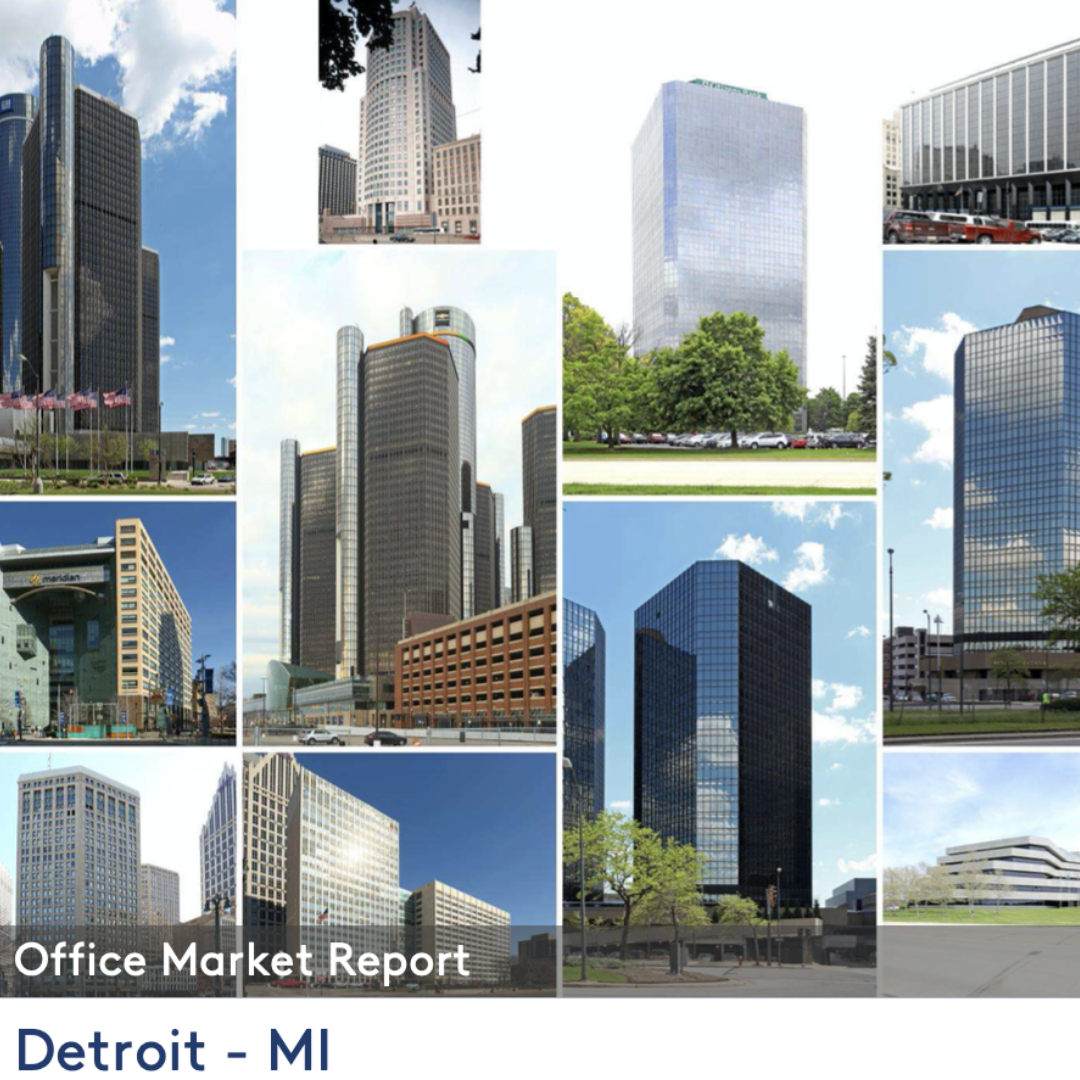This post originally appeared on tBL member Lynn Drake’s blog Compass-Commercial Blog | Expert Commercial Leasing Advice and is republished with permission. Find out how to syndicate your content with theBrokerList.

The second quarter of 2021 has seen limited movement in the office market report. As Michigan’s vaccine rollout has slowed, renewed spikes in Covid-19 cases have supported employees’ arguments to continue working from home, which means that lots of valuable office space continues to sit empty. With significant employers like General Motors adding flexible “working appropriately” (from home or the office) options for salaried employees, it appears that a larger cultural shift regarding where people work might impact the office market over the long term. Nevertheless, overall demand has moved into the positive column for the first time in a year, possibly signaling the start of a slow but steady upswing.
Q2 Office Market Report
Leasing
Although overall leasing increased incrementally to 1.1 million SF signed, it remained well below historical values after subleasing, specifically, took a deep dive in the last quarter of 2020. With 1.75M SF of subleasing space currently available, what will become of it remains to be seen as net absorption continues to be lower than deliveries. The expansion of the Barbara Ann Karmonos Cancer Institute and USI Insurance have contributed to an increase in leasing activity in Southfield.
Renting
After peaking six months ago, rent growth has been declining and is now in the negative in all Detroit submarkets. The Airport District, Birmingham, Troy North and South, Bloomfield West, and Pontiac experienced the steepest declines due to a high number of 1-, 2-, and 3-Star buildings or high availability rates. Falling below $21/SF on average, rents remain the highest in the state, particularly in Birmingham, Bloomfield, the CBD, and the Central I-96 Corridor.
Construction
Deliveries this year have outpaced those of last year, with a large majority (770,000 of 1 million SF total) comprising 4- and 5-Star buildings. The largest recent delivery was 200,000 SF in Farmington Hills, which has been leased by Mercedes-Benz for their Financial Services USA headquarters.
Here are the top submarkets in Detroit for the second quarter:
- CBD
- St Clair & Lapeer Counties
- Detroit W of Woodward
- Detroit-New Center
- Southern I-275 Corridor
Under Construction Properties
The majority of new construction is happening in the Central Business District (1 million SF), New Center (600,000 SF), and Detroit West of Woodward (500,000 SF). Two 400,000+ SF spaces on Woodward are scheduled for delivery in the first half of next year: a 20-story building with retail space on the first floor and the SOMA Midtown Detroit office.
Here are the 7 largest properties that are, or were, under construction in the second quarter:
- M-24 &Silverball
- 2001 15th St
- 2025 Woodward Ave
- Hudson’s at 1206 Woodward Ave
- Royal Oak City Center at 111 E 3rd St
- 120 Henry St
- 39000 W Seven Mile Rd
Sales
While new construction continues to outpace demand, some areas are starting to get back on track. The average price per square foot for new sales was $96 with 10.4% average vacancy at sale. Nevertheless, investment activity overall seems to have stalled for the time being, falling a bit after a significant increase in Q4 of last year. Harbor Group International closed the biggest deal of Q1, selling a 180,000 SF space in Novi for $58 million.
Economy
After the bottom fell out of employment at the beginning of last year, unemployment has remained a major problem in Michigan generally and, more specifically, in Detroit, where the unemployment rate is currently 9.1% (compared to the national average of 6.2%).
White collar employment seems to be rebounding more rapidly than leisure and tourism, although increased vaccination rates and limited lockdowns should help those sectors continue to recover throughout the rest of the year. Even as unemployment remains high, though, many businesses (approximately 45% of small businesses) are reporting worker shortages, which is impacting their ability to grow and contribute to the region’s economic recovery.
Manufacturing, one of the state’s top three industries, continues to report limited growth, but global supply chain issues may have a negative impact on automobile manufacturing growth in the short term. Specifically, the lack of microchips has left thousands of lots of unfinished vehicles. In response to this problem, Ford Motor Company has announced that dealers will be receiving limited inventory this summer (1/3 to 1/2 of their expected allocation). Nevertheless, Fiat Chrysler Automobiles’ new Detroit Assembly Complex and the new Jefferson North Assembly Plant plan to add approximately 5,000 new jobs in the coming months.
This is a summarized version of an office market report that was originally created by CoStar. The full report can be https://www.compass-commercial.com/office-real-estate-report-2020/.



